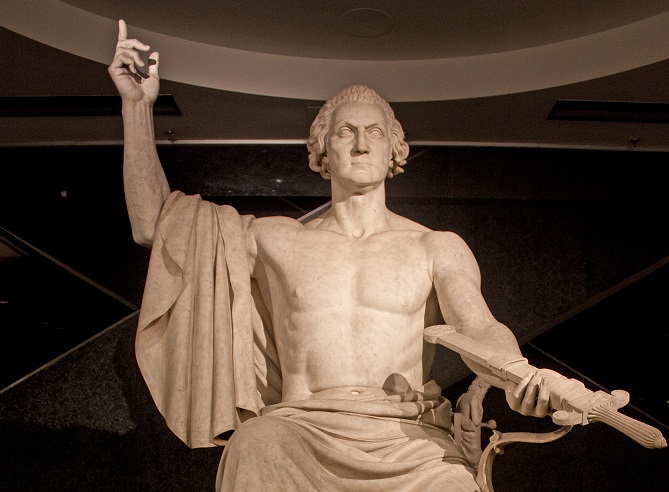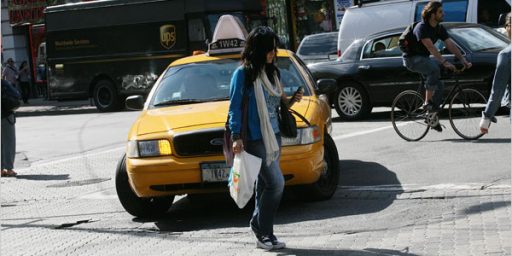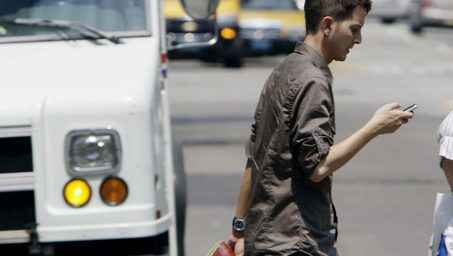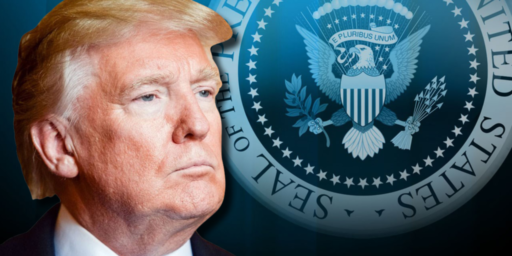POTUS Should Be Just A Job
The distance in accountability between the highest and the lowest must be shortened.

Somewhere in the United States, a person on parole has run afoul of the law, and is fearing the worst. Perhaps he was in a car stopped by the police, and unbeknownst to him, his friend, who owns the car and was driving, was carrying drugs. Perhaps he knowingly committed a petty crime, such as shoplifting. Whatever the origins of his predicament, he now awaits the harsh consequences tomorrow, when the criminal justice system decides his fate.
Meanwhile, Donald Trump is a free man. Without having to recount his many crimes, culminating in the incitement to insurrection, he faces no such consequences. The recently-ended Senate trial carved away all pretense of justice, down to the bare bone of privilege. He lives in a different world than the fearful person I cited in the previous paragraph. He is protected by a rabid base, conservative media outlets, elected officials…And the way we treat the Presidency as something greater than merely another federal job.
We all know the phrase “imperial presidency,” a term that Arthur Schlesinger made famous with his book of that title. The Presidency has been accumulating power over the last several decades, most noticeably during the Cold War. The expansion of the federal bureaucracy gave the President a vast apparatus to carry out policies and to anticipate the current occupant’s preferences. The razor-thin margin of nuclear deterrence encouraged the view that the President needed a wide latitude in foreign affairs, particularly to make rapid decisions during a crisis. Certainly, the abdication of Congress in actually passing legislation has further encouraged the drift of power in the direction of the White House. Various laws and rules, such as the one that protects a President from criminal indictment while in office, further widen the gap between parolee and President.
Undergirding many of these protections from consequences are our attitudes towards the Presidency. We feel the office is special…But why? Certainly part of the answer lies in the confusion between the head of state and head of government that exists in our political system, and not in others like Great Britain’s, where the division between who symbolizes the nation and who manages it is more clear. As a result of this entanglement of the dignified and efficient parts of the government, many Americans believe that a President in trouble somehow makes the country look in disarray.
Another factor is our strange inversion of interest in politics. Americans tend to know less about politics, the more local it is, to the point where many people know Mayor Pete and can’t identify the mayor of their own town. We know more about the President than anyone in our political system, and we feel most passionately during Presidential elections than any other race. That, too, makes the Presidency special, and lets other elected officials off the hook, because of their presumed unimportance.
The Cold War national security argument I cited earlier — a distracted President can’t protect us all from existential threats — is another underlying assumption. Various Justice Department policies and legal opinions are based on the principle that the President is too busy with the country’s business to be burdened by legal concerns, at least while in office. But as the second impeachment trial showed, people are still willing to make excuses for not holding a former President legally accountable, lest we all get distracted from the nation’s urgent business, or we make future Presidents look too often over their shoulders while in the Oval Office.
Trump has shown us how these assumptions are not merely nonsensical, but dangerous. For example, during his one term, he was neither busy with the concerns of his office, nor quick to respond to an existential threat, a pandemic. We saw, in operation, the opposite of the explicit bargain behind the national security argument for Presidential exceptionalism. Trump also used the protections of the office often to feverishly work to protect himself from facing legal consequences for his actions while in office. Rather than being too busy to be distracted from his stewardship of the nation, he was occupied with saving his own neck. The time spent between Election Day and January 6 in many meetings and phone calls, feverishly trying to undermine the results of the 2020 election through pressure and threats, was merely the intensification of how he spent the nation’s time and resources on avoiding consequences for himself.
Therefore, the solution is not merely to find a better occupant to enjoy the privileges of the office. We also must re-think the Presidency, to make it less imperial in both our minds and the rules that constrain it. We need to focus on other offices than the President. We need to stop treating the President as the embodiment of the nation. We need to revise the rules that allowed Trump to avoid accountability while in office. We need to dig a wider and deeper moat between the White House and the Justice Department. We need to make a lot of other specific changes about the Presidency, but they won’t start until Americans see it, not as some separate species of Constitutional office, but just another job that the Constitution and federal law prescribes and constrains.
Almost two decades ago, during the post-9/11 period, I thought the great Constitutional mistake we had been making for decades was putting declarations of war on the shelf. On the questions of greatest gravity, we were playing fast and loose with the Constitution, which weakened our fidelity to other critical parts of the Constitution beyond the war-making aspects. It certainly contributed to the loosening of Presidential constraints. Now, here we in a perverse time in which many people have spent a great deal of time making excuses why we cannot make a President accountable for everything from emoluments corruption to inciting a violent attack on our democracy, our elected officials, and the irreplaceable building where they work. This is clearly not what the Framers intended.
To build on what Dostoyevsky said, “A society should be judged not by how it treats its outstanding citizens but by how it treats its criminals,” we should shorten the distance between the lowliest criminals and the highest.






I strongly agree with the points you made in this passage:
In order to address those don’t you need to identify the underlying reasons for the growth or the “Imperial Presidency”? I think the the main reason for that is the abrogation of Congressional responsibility. Said another way I don’t think you can reduce the power of the presidency without getting the Congress to assume more of its own responsibilities.
That in turn brings up the follow-up question: why is the Congress ceding its power to the Executive?
@Dave Schuler: I did mention Congressional inaction in the post, and I think it’s an important part of how we arrived at Presidential exceptionalism. There are a variety of structural reasons for it, which I fully expect Steven to mention, if he comments here. Beyond those, I think there are some reasons based in the Republican Party, which perversely has become a party of opposition, even when in power (see Ornstein and Mann’s book, It’s Even Worse Than It Looks). The Republican Party has absolved itself of any responsibility for doing anything beyond judicial appointments and tax cuts. They oppose a Democratic POTUS, and support a Republican one…And that’s all she wrote.
There’s also a tendency for Congress to snipe on the sidelines. Certainly that has been the case with war powers: let the President wade into a conflict, and then decide whether to really support the US role in the conflict or not. That’s why I don’t see measures like the War Powers Act and authorizations for the use of force as effective alternatives to declaring war. When a conflict rises to the level of, say, invading Afghanistan or Iraq, the whole country should be making the decision and be held accountable for the consequences. That means more elected representatives than just the one in the Oval Office need to make the decision, mobilize the country behind it, and be held for the consequences.
I concur with your thesis.
Quite honestly, the kind of thing you are describing here is why I would prefer a parliamentary system (but know that is a fantasy). But that is a way to make it just a job (or more so than it is now). It would also separate out the head of state role from the head of government role.
@Steven L. Taylor: Damn, I should have placed a bet somewhere on how long after I posted something about presidential systems that you would comment.
@Kingdaddy:
I was just about to, in fact!
I used to think that the primaru problem was, as per @Dave Schuler, the “abrogation of Congressional responsibility.”
And while I think that is true to a degree, I don’t think it is the main problem. I think that presidentialism inherently leads to the concentration of power in the executive. This is true for a variety of reasons, not the least of which is that there is no electoral motivation in a presidential system for a party to put forth and run on a policy platform and then be in a position to execute it. This is even more true if the legislature is bicameral. And then even more true if the second chamber gives the minority party a veto on most legislation.
Put another way: what is more efficacious in American politics? Winning a majority in the Congress or winning the presidency? And if you are Democrats, you are at a major disadvantage in the Senate, making it all the worse.
Even now: the Dems “control” all three branches, except that they don’t because of the filibuster (and so not just let Biden sign executive orders and hold fast–and goodness! there is another election in less than two years we all need to get ready for).
The result is electoral incentives to win the presidency and then use executive power (including appointments) to the max.
This made even worse, as Kingdaddy notes, when one of the parties is interested primarily in obstruction.
@Kingdaddy: 🙂
I had just finished posting my massive navel-gazing post and so was ready and primed!
Though I don’t share the need to have a quasi-royal figure as the head of state, I understand that the need exists. People may treat the president as king because that’s what they actually deep down want. But they know they shouldn’t want that, because Americans have no rank (ha) and we’re all equal (ahem).
That may be one of the reasons why we got Trump. A churl/slob/buffoon becomes monarch, in a real-life version of King Ralph. It was the best (worst) of both worlds.
In agreement and like Dr T, I’d like a parliamentary system, but is wishes were horses… Failing that more closely tying the election to the legislature to the election of the president would be desirable. So that every four years we are electing a government that will be in place for at least 4 years.
@Sleeping Dog:
Endorse
In some respects, electing someone is placing trust in them, and there’s no getting around that. Nevertheless, the system has the “checks and balances” to avoid putting too much trust in one person.
I absolutely agree with your core premise that a president above the law is a very bad thing, but we should be clear that the gap in justice available to the parolee in your first paragraph and Trump goes beyond any considerations of his office. There’s a gap between an imperial president and the average white collar criminal. There is an awesome chasm of legal inequity between the white collar criminal and the petty crook.
Does anyone doubt that Trump did committed at least a few criminally fraudulent acts prior to his even thinking about running for POTUS? You don’t have a fixer like Michael Cohen on retainer because you’re living your life by the letter of the law. If Justice were blind to money and class, then Trump would have been sitting in Wallkill Correctional Facility in 2016 and he’d have never come close to the White House
People selling used cars are more trusted. Consequently we tend to look with bemusement at the way many Americans venerate the presidency. But some practical suggestions, which any president committed to restoring a more rational set of attitudes could adopt:
1. Scrap the ‘state of the union’ nonsense. Politely reject the Speaker’s invitation to deliver the report at the Capitol, advising instead that it will be delivered in writing.
2. Stop negotiating detailed legislation with selected interests in Congress, whether that be Republicans negotiating with a Democratic Speaker (Mnuchen/Pelosi) or Democrats with Republican senators (Obama/Grassley et al.). Adopt a sphinx-like expression and say you look forward to receiving a bill that both chambers have passed. Too often, parties in Congress have crafted bills with a potential presidential veto as the first consideration.
3. Say “C’mon, man, that’s a matter for Congress!” a lot.
4. Direct every agency head to hold regular media briefings. Make it clear the White House Press Secretary is not in a position to respond intelligently to questions about every goddam matter being dealt with in the administration. Tell the White House Press Secretary to say “You should ask that question at the [relevant agency’s] next media briefing” a lot.
5. Issue an executive order establishing an Office of the Pardon Attorney independent of the DoJ. Commit to issuing no pardons or commutations which have not first been recommended by the Attorney.
6. Wear tan suits occasionally.
What statue is that?!
That looks like Washington in a full Roman iconographic rendition.
Scares the crap outta me.
@de stijl: Washington needs a nipple ring. I am disappointed that I could not find a photoshopped version.
But, here’s sexy, shirtless Honest Abe. https://twitter.com/malgorzatar/status/992031977787273216?s=21
@Gustopher:
I really like the statue of young Lincoln.
Naturalistic.
One could see him as a strapping young man what with farm work and rail splitting and all.
You can see a faded handsomeness in his photos behind the gaunt austerity of his late in life visage.
That Washington statue is an abomination. The Roman style is grotesquely misapplied.
I found the image. Enthroned Washington currently sits at the National Museum of American History by a guy named Horatio Greenough. There is a wiki article.
I find it really friggin’ creepy.
Can (not will) Trump still be tried in federal or local courts (such as DC) for insurrection or inciting a riot?
@BugManDan:
Probably not. Most legal expert seem to agree that Trump is protected from criminal prosecution by the 1st Amendment. Trump’s lawyers would argue that he spoke metaphorically.
@de stijl: It’s one of the first things you’ll see at the Smithsonian’s museum of American history. Its a bit of a shock, but also a reminder of what Washington did not want.
@Kingdaddy:
Washington explicitly declined a role akin to a caesar.
That statue is un-American.